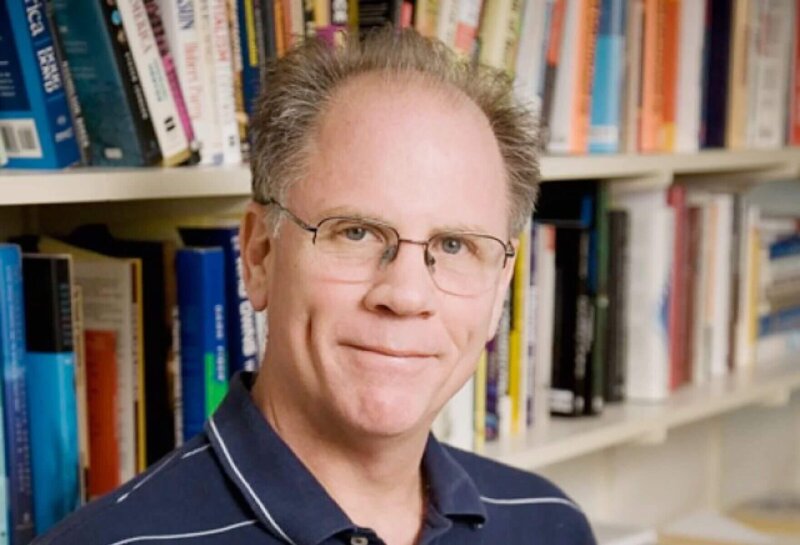MEF Mourns the Passing of Robert W. McChesney

Photo: Courtesy/University of Illinois News Bureau
MEF Mourns the Death of Robert W. McChesney
MEF mourns the passing of our longtime friend and collaborator Robert W. McChesney, the brilliant media scholar and tireless warrior for journalism whose groundbreaking work illuminated how corporate control of media imperils democracy.
For decades, Bob’s scholarship, activism, and unwavering commitment to democratizing our media system have been a major source of inspiration to all of us at MEF.
We were especially honored to work alongside Bob on two films based on two of his most influential books, some fifteen years apart: Rich Media, Poor Democracy (2003) and Digital Disconnect: How Capitalism is Turning the Internet Against Democracy (2018).
Working with Bob on these projects was a pure pleasure, and his unflinching support for MEF over the years meant the world to us. We’ll miss his formidable intellect and unparalleled dedication to media reform and media education – but, most of all, we’ll miss his kindness, generosity, and humor.
Bob, with his remarkable intellect and even more remarkable capacity for communicating his vision of a media that served citizens rather than corporations, was always the driving force. His research and his insatiable curiosity helped him to see the future more clearly than any scholar of his generation, with such precision that Bill Moyers would compare him to both Tom Paine and Paul Revere. As new political and societal challenges arose in an ever more chaotic moment for America and the world, Bob explained how they should be understood as fresh manifestations of an ancient danger: the concentration of power — in this case, the power of the media, in the hands of old-media CEOs and new tech oligarchs, all of whom cared more about commercial and entertainment strategies than democratic and social values.
Bob was frustrated by the oligarchical overreach now on display in the Washington of Donald Trump and Elon Musk — a development he had predicted with eerie accuracy. Yet, he remained undaunted to the end, still spinning out fresh ideas for upending corporate control of media, getting big money out of politics, and ushering in a new era of freewheeling debate and popular democracy.
That was the essence of Robert Waterman McChesney. He was a globally respected communications scholar who was wholly welcome in the halls of academia, yet he was never satisfied working within an ivory tower. He was a rigorous researcher into the worst abuse of corporate and political establishments. Yet he refused to surrender his faith in the ability of people-powered movements to upend monarchs and oligarchs and, in the words of Tom Paine, “begin the world over again.”
Bob McChesney was a brilliant scholar whose ideas and insights reached far beyond the classroom. He opened the eyes of a generation of academics, journalists, politicians and activists — including me — to how media structures and policies shape our broader politics and possibilities.
While McChesney spent much of his career charting the problems of the media and the critical junctures that created our current crises, he believed fundamentally in the public’s ability to solve those problems and build a media system that serves people’s needs and sustains democracy. His ideas were bold and transformative, and he had little patience for tinkering around the edges. Rather than fighting over Washington’s narrow vision of what was possible, he always said — and Bob loved a good sports metaphor — that we needed to throw the puck down to the other end of the ice.
McChesney believed in turning ideas into action — which is why he co-founded Free Press. He believed that people deserve a say in policy decisions that for far too long were made in their name but without their consent. He taught us that the media wasn’t something that just happened to us, but something that we can and must shape and change. We at Free Press remain committed to that work and his vision.

